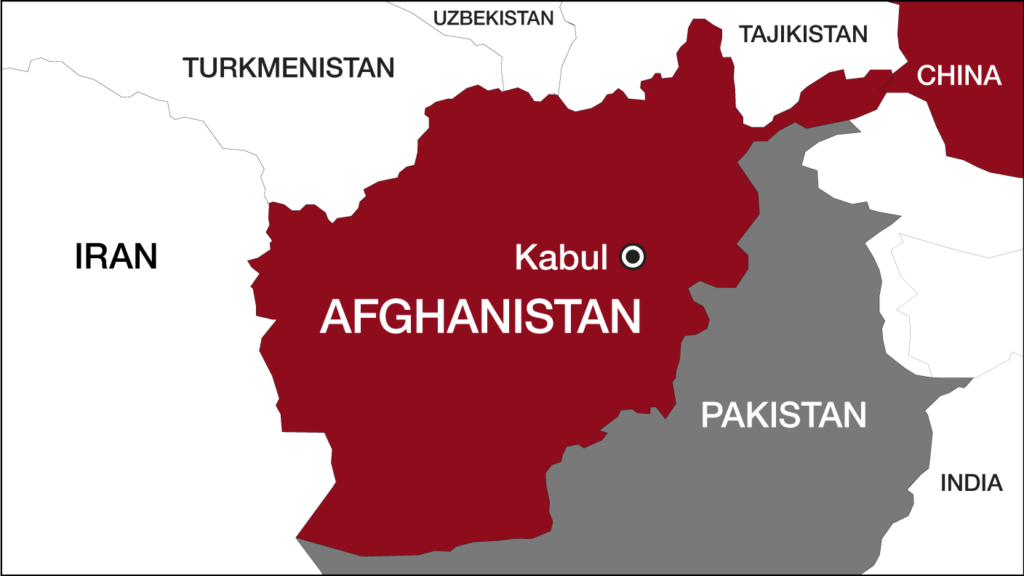International Relations
Afghanistan’s Humanitarian Crisis
- 21 Feb 2022
- 6 min read
For Prelims: Afghanistan, World Bank, Delhi Regional Security Dialogue, Taliban, Islamic State.
For Mains: India and its Neighbourhood, Effect of Policies & Politics of Countries on India's Interests, Crisis in Afghanistan and its Implications.
Why in News?
Recently, the World Bank has approved a plan to use some USD 1 billion in a frozen Afghanistan trust fund for education, agriculture, health and family programs to ease the country's worsening humanitarian and economic crises.
- The aim is to protect the vulnerable, help preserve human capital and key economic and social institutions and reduce the need for future humanitarian assistance.
- Earlier, the Delhi Regional Security Dialogue on Afghanistan was held in India.
What is the Current Situation in Afghanistan?
- An insecure Afghanistan has not only dangerous implications for the region but also the whole world.
- Afghanistan has been unstable and insecure for decades, but the Taliban’s capture of power in August 2021 has had the entire region hanging by a thread.
- The current situation in Afghanistan is disturbingly similar to the geopolitical scenario in the late 1990s.
- The Taliban seized power in 1996, but the international community did not fully grasp the potential consequences of the new paradigm.
- International aid organisations have left the country. The Taliban are unable to pay the wages to government employees. The public health care sector is in a disarray.
- The war-ravaged country is facing an unprecedented humanitarian crisis, which could turn into another violent conflict.
- Apart from the suffering of the rural population, even Afghans based in cities are finding it impossible to make ends meet.
- Afghanistan could face a bigger catastrophe if the Taliban are unable to improve the economic situation, adding that they will find it difficult to govern and a civil war could erupt.
- It is easier for terrorist groups to operate in a country that is facing economic turmoil. Afghanistan is no exception.
What are the Impacts of the Humanitarian Crisis in Afghanistan?
- Many western nations see an immediate security threat emanating from Afghanistan. The Taliban, seeking to gain international recognition and financial aid, are more inclined toward a “diplomatic” approach than employing violent tactics. But this superficial calm may not last for long.
- If the humanitarian crisis aggravates in Afghanistan, even the Taliban won’t be able to manage the situation, as evidenced by violent “Islamic State” (IS) attacks.
- A possible violent conflict in Afghanistan could spill over to other countries in the region.
- If that happens, regional powers will start supporting proxies to keep the violence within Afghanistan’s boundaries. But it will only be a short-term solution to the Afghan conflict.
- The more the Taliban stay in power, the more difficult it will get to maintain stability in the region.
- The Taliban have ties with international terrorists. Their return to power has emboldened jihadi organizations in the region.
- As they consolidate themselves, their tactical and strategic ties with terrorism financiers and sponsors will grow and will eventually jeopardize peace and security in the region and beyond.
What should the World do for Afghanistan?
- The humanitarian crisis in Afghanistan cannot be resolved through humanitarian aid alone.
- Afghanistan’s economy needs to be improved so that Afghans can be brought out of poverty.
- But to lift Afghanistan’s economy, the international community needs to engage with the Taliban.
- Terrorism will not be contained within Afghanistan’s borders if the humanitarian situation in the country does not improve.
What will be the Implications on India?
- Strategic Concern:
- The Taliban’s control will also mean a bigger hand for the Pakistani military and intelligence agencies to influence outcomes for the country, which will mandate a much smaller role for Indian development and infrastructure work that has won it goodwill over the past 20 years.
- Threat of radicalisation:
- There is the threat of growing radicalisation and space for pan-Islamic terror groups in India’s neighbourhood.
Way Forward
- Inclusive Government: The solution comes only through the formation of an inclusive government with the participation of all ethnic groups.
- Russian Support: Russia has cultivated links with the Taliban in recent years. India would need Russia’s support in any form of direct engagement with the Taliban.
- Bonhomie With China: India should talk with China, with the objective of finding a political settlement and lasting stability in Afghanistan.
- Engaging with Taliban: Talking to the Taliban would allow India to seek security guarantees from the insurgents in return for continued development assistance or other pledges as well as explore the possibility of the Taliban’s autonomy from Pakistan.





